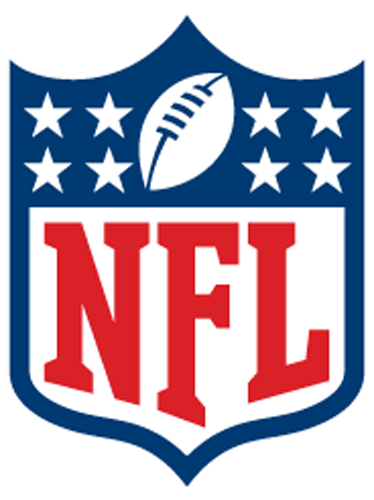The St. Louis Rams (6-8), Seattle Seahawks (6-8), and San Francisco 49ers (5-9) are the top three teams in the division and none of them have any possibility of concluding the regular season with a winning record. Looking at the remaining schedules of all three teams, it is probable that the NFC West winner will finish with a 7-9, losing, record. No team, through a division title or wild card, has ever reached the NFL playoffs with a losing record in a nonstrike season.
It Is Good Enough for the NBA
The playoffs of the National Basketball Association are immensely popular and are successful from a ratings standpoint each year. For many, fans, basketball season does not "really" start until late April. The NBA almost always has losing teams in its playoffs, particularly from the Eastern Conference in recent years. This has not prevented exciting first round matchups, such as the eighth seeded, sub .500 Atlanta Hawks pushing the eventual NBA Champion and first seeded Boston Celtics to a seventh and deciding game in the 2008 playoffs.
The NBA, however, plays an 82 game regular season that begins in late October and lasts six months. Basketball is a sport in which a lucky bounce, a generous judgment call by an official, or a minor injury to a key player can ultimately decide the outcome of a game. The top eight teams in each conference reach the NBA playoffs, for a total of 16 teams. What the 16 team, tournament structure of the NBA playoffs does is allow all but the bottom feeders of the league to have several opportunities to advance in best of seven series matchups. The 82 game regular season and the best of seven format in the playoffs smooths out much of the random, less team skill related factors influencing the outcome of games. The National Hockey League also implements a similar regular season length and playoff structure.
 |
| PLAYOFFS?!? 6 |
The problem with the NBA structure, if one attempted to apply it to the NFL, is a practical one: football is too physical and traumatic on the body to play anywhere near the number games that other sports, with FAR less contact, play each year. While the gaps in actual talent between the team with the best record and the team with the second best record (and subsequent teams in order of winning percentage) may be razor thin, if not non-existent, the same gap between the best and eighth best team in each conference is usually quite visible. Fans know the difference. It is not worth the additional toll on players' bodies and the dilution of the team talent participating in the NFL playoffs to allow four additional teams, of whom some, every year, will likely have losing records, for the trade off of a marginal increase in television viewership and playoff ticket sales. Allowing more losers to participate in the post season would be to the detriment of the NFL product, not its benefit.
What Can Be Done About the Losers at the Party?
Should the NFL choose to change its playoff structure to reduce the reward to losing teams that qualify for the playoffs by winning a weak division, there are several options available. One option is to simply not allow a team that cannot win half of its games to participate in the post season. The NFL could remove the sub .500 division winner and reward the highest non division winner with the seed that the sub .500 team would otherwise occupy. A winning or break even team in another division could be rewarded with the final playoff spot.
 |
| These chicks thought the Seahawks were losers, too, but at least it was after the Seahawks lost the SUPER BOWL (XL)! Let's hope that doesn't happen this year. 2 |
Another option is to not preclude participation in the playoffs to a division leader with a losing record, but, instead, grant home field advantage in a playoff match, regardless of seeding, to the team with the better regular season record. This technique is used in the NBA and I find it to be a fair and equitable one. The aspect of a possible sub .500 NFC West winner that I find most outrageous is the possibility that such a team, with an unimpressive regular season performance, gets the privilege (both financial and strategic) of hosting a team with a stellar regular season performance, such as a 12-4 team. I think that the concerns about fundamental fairness that fans may have would be addressed satisfactorily by this solution.
 |
| Seahawks coach Pete Carroll: LOSER! 3 |
 |
| Much like in 2007, the Rams are still LOSERS! 4 |
The reason that each division winner is rewarded with a playoff berth in its conference is that each team has a greater proportion of its games clustered with its division and within its conference. A round robin regular season schedule, even if possible (or limited to within one conference, so that all regular season games were intra-conference matchups) would water down the intensity (and fun) to the bi-annual divisional rivalries that fans and players enjoy now. The effort to change something wrong with the NFL by using a fair, straight, non-alignment-dependent seeding structure would reduce more of what is right with the NFL.
If It Ain't Broke, Don't Fix It
The NFL is the most popular sports product in American history. Its playoffs are a television ratings bonanza. The Super Bowl is usually the highest rated television broadcast every year. In spite of the pending competitive travesty that the NFL is likely to experience when the first round of the playoffs begin in January, I think that the current playoff structure of the league should remain unchanged.
 |
| Winners, no matter what happens 5 |
Every NFL team currently has a schedule structured such that it plays the greatest proportion of its games (38%) against teams within its division and 75% of its total games against teams within its conference. This breeds familiarity, rivalry and excitement, while addressing the fact that a limited number of games can be played in a given season. The playoffs should reflect this alignment similarly, with these groupings of teams being represented by the best within those groups, by those representative teams hosting a game in the post season. The 2010 season appears to be a very unusual year in which an entire division is void of an impressive team. It is disappointing, but very unusual, and not likely to happen in the near future. The NFL should not attempt to correct what is working well with a knee-jerk reaction to what is likely an isolated anomaly in the competitive landscape of the 2010 NFC playoffs.
Don't forget to vote in today's fan poll!
1) Image from 619sports.net
2) Image from good-times.webshots.com
3) Image from sportspressnw.com
4) Image from dummr.wordpress.com
5) Trademark of the National Football League
6) Image from starvalleyindependent.com
No comments:
Post a Comment